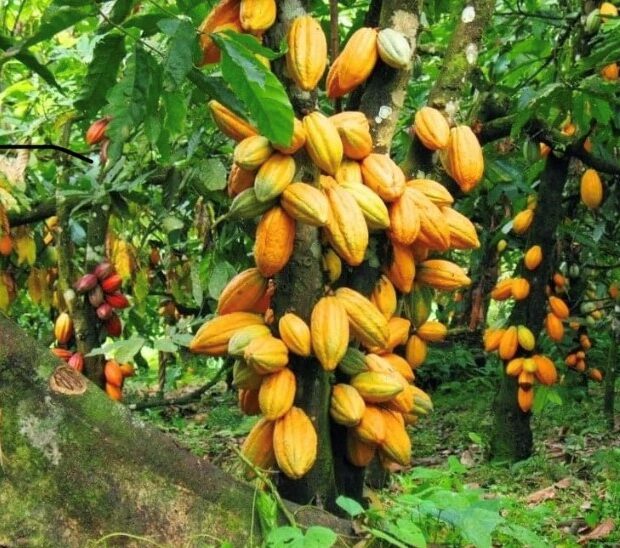It will take both producing and consuming countries to build a cocoa industry that is sustainable, Dutch Ambassador to Ghana, Jeroen Verheul, has said in a rallying call for increased collaboration among stakeholders.
He said longstanding issues of sustainable cocoa production – such as causes of deforestation, cultural aspects of child labour and decent living income for farmers – are matters that can be addressed through closer dialogue between producing and consuming countries.
“These are key sustainability issues that have been with the sector for a long while, with both producing and consuming countries pledging to tackle these issues. The Netherlands in particular is committed to 100 percent sustainable sourcing by 2025.
“This can only be realised by working together with all stakeholders in the sector. And the Netherlands emphasis here is ‘change’, because that is the common interest we have in cocoa and chocolate. Challenges which await us in the future threaten that common interest, and there’s a need to collaborate closely and broadly to jointly tackle those challenges,” he said.
He spoke in Accra during the maiden Orange Cocoa Day organised by The Netherlands mission in Accra on the theme ‘Promoting service delivery in Ghana’s cocoa landscape for cocoa sustainability’, and said his country is committed to working with local farmers, regulators like COCOBOD and civil society organisations to understand the challenges, and then find common ground acceptable to all parties with the overarching objective of ensuring a sustainable future.
In this vein, he said, The Netherlands aside from being active in policy advocacy also has “our ‘boots and brains’ on the ground” through its implementation partner – Solidaridad; testing market-based models for cocoa sector sustainability.
Among the models is included Rural Service Centres (RSCs), which address issues like access to improved agronomic services; creates employment for the youth; and promotes continuity in the cocoa sector.
“This model, however, is not the only panacea for sustainability challenges in the sector. Others have been tested by other players and, most importantly, the regulator through their cocoa rehabilitation programme. This makes working together with all stakeholders imperative. This Orange Cocoa Day event is our modest way of providing and creating the platform to engage further in this very important subject of sustainability,” Mr. Verheul added.
Solidaridad’s interventions
Through Solidaridad’s support, Hammond Mensah – the institution’s Programmes Manager, said 9,700 young men and women have been trained in cocoa production through a MasterCard Foundation-funded project – Next Generation of Cocoa Youth (MASO).
Through the MASO initiative, he said, 150 graduates from the programme are being supported under the second phase of the Cocoa Rehabilitation and Intensification Programme (CORIP II) to establish the RSCs, which have now become models for quality service delivery in the sector. He said the RSCs are crucial in the provision of farm management services to help transform the country’s cocoa sector.
COCOBOD’S commitment to sustainability
For his part, Chief Executive of COCOBOD, Joseph Boahen Aidoo, said issues on sustainability amplify the need to build best supply chain practices that respect the environment, human rights and improve living conditions of cocoa farmers.
“The underlining causes of deforestation and forest degradation – which include land tenure, tree tenure and low incomes in cocoa farming – are multifaceted and require collective efforts to address them. COCOBOD acknowledges that deforestation and forest degradation have serious consequences on biodiversity and climate change,” he said.
To mitigate risks, he said, his outfit has initiated two interventions – an environmental and social management system and an environmental and social management plan – aimed at identifying and managing any potential environmental and social risks associated with cocoa production.
These measures seek to create sustainable pathways for cocoa production and other activities in the cocoa landscape. He added that the Board is also distributing economic shade trees to farmers – in addition to banning use of weedicides and herbicides under its sustainable cocoa production plan. Others include continuous sensitisation on child and force labour.
The Orange Cocoa Day seeks to build consensus on service delivery toward a sustainable cocoa industry.










